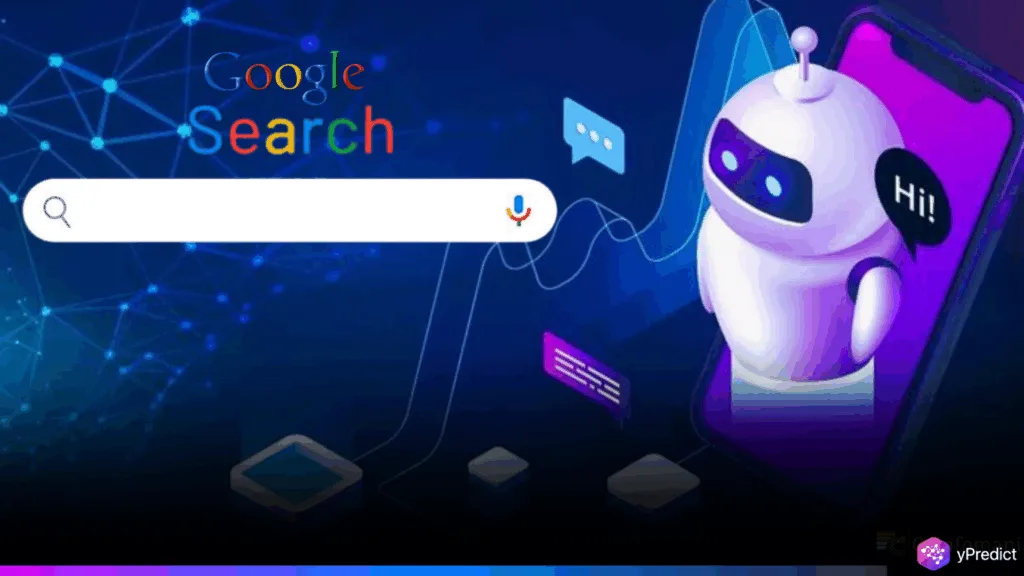
Google has officially launched a new “AI Mode” that adds conversational capabilities directly into its search engine. The move, announced at Google’s developer conference in California, is part of Alphabet’s effort to compete with rivals like ChatGPT. AI Mode is now available in the U.S., allowing users to interact with search like a chatbot. CEO Sundar Pichai described this as a “new phase” in AI’s evolution, enabling longer, more complex user queries. Google also unveiled plans for AI-powered Google glasses and a subscription-based AI tool as it doubles down on transforming how people access and interact with information.
Search Becomes a Conversation as Google Rolls Out AI Mode
Google’s “AI Mode” transforms the traditional search experience into a more interactive, conversational session. Users in the U.S. can now ask detailed questions and get expert-style answers directly within the search bar. Powered by Google’s Gemini chatbot, this new mode is part of the company’s larger effort to redefine the user journey on the web.
At the developer conference, Sundar Pichai said the AI integration will allow “more advanced reasoning,” giving users more useful answers with less effort. The change could reduce the need to click through multiple websites, effectively turning Google into a digital assistant rather than just a link index. Analysts believe this shift could improve efficiency but hurt ad revenue, which relies on user clicks.
AI Mode is a total reimagining of Search — an end-to-end AI experience with more advanced reasoning. Early testers have been asking much longer queries, 2-3x the length of traditional searches.
— Google (@Google) May 20, 2025
AI Mode is rolling out to everyone in the U.S., starting today. 🎉#GoogleIO pic.twitter.com/xGELAnY1tM
Leo Gebbie of CCS Insight said the change is a big step toward Google becoming more of a problem solver than a search platform. However, as Cory Johnson of Epistrophy Capital noted, it may create friction for Google’s core business: “They’re getting better at answering, worse at monetizing.” Still, Google remains optimistic that conversational AI tools will drive the future of search. The feature may roll out in other regions as testing expands and user behavior adapts.
Google’s AI Push Extends to Wearables and Summaries
Beyond search, Google also announced new augmented reality (AR) glasses that integrate AI features. The smart glasses, in development with Warby Parker and Gentle Monster, will include a camera, microphone, and speakers. This marks a return to wearable tech for Google after its early Google Glass failed to gain traction.
The tech giant also highlighted progress on AI Overviews, which show AI-generated summaries at the top of some search results. Though mocked for early bizarre responses, like recommending humans eat rocks, the company claims Overviews now sees 1.5 billion monthly uses in over 200 regions. Pichai said the tool drives 10% growth in supported query types in the U.S. and India, calling it “one of the most successful launches in the past decade.”
These announcements come as Google faces antitrust pressure in U.S. courts, with a judge recently ruling it holds a monopoly in search. Critics say the shift to AI Mode could disrupt revenue streams tied to traditional web ads. Still, Google sees long-term value in leading the AI transition, hoping smarter tools will deepen user loyalty and create new monetization models across hardware, software, and services.
Google’s AI Bet Aims to Reinvent Search, But Risks Remain
Google’s pivot to AI-first search signals a major shift in how people will access information online. Embedding chatbot features may help the company stay ahead in an AI-driven era. Yet this evolution threatens to disrupt its core business model, which depends heavily on user clicks. At the same time, Google’s AI glasses and AI Overviews show its broader push toward intelligent, personalized tools. With lawsuits and growing competition in play, the company must balance innovation with financial and legal realities. Still, Google appears determined to lead the way in redefining how we search, ask, and discover online.






